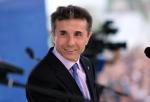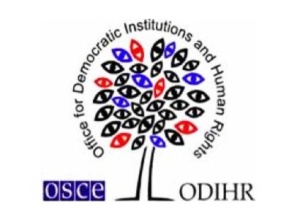16.00 GMT: polling has closed in Georgia’s Presidential election. Turnout was considerably lower than at Parliamentary elections last year. There were reports from domestic election monitoring organisations of isolated cases of violations, and a serious case where a group of around 250 voters were not on the voters list in Adjara.
13.00 GMT: Georgians wait in anticipation to see what will be the result of the first election that will see their President being replaced through a normal electoral process. By 15.00 hpours local time the central Elections commission was reporting that 32.05% of the electorate had cast their vote. This is a significant 13% less than the number of those who voted by the same time during the parliamentary elections last year. The lowest turnout is reported in the mainly Azerbaijani speaking regions of Khvemo Kartli
10.30 GMT: Voter turnout in Georgian Presidential elections was 17.5% by 12 noon – compared to 25% at the same time in Parliamentary elections in 2012. Commentators have noted that the lowest turnout so far is in the mainly Azerbaijani populated region of Khvemo Kartli. This region was infamous throughout the last two decades for abuses during voting, including ballot stuffing and multiple voting. A low voter turnout may for the first time reflect the reality, namely an Azerbaijani speaking population that often feels marginalised and far away from the political processes in the Tbilisi. According to the Georgian CEC 58593 representing 14.4% of the electorate, had cast their vote by 12 noon.
08.15 GMT: 240,732 voters had cast their ballot in the first two hours of voting in Georgia this morning, according to a briefing by the Central Elections Commission. This constitutes 6.8% of the electorate. Although compared to the same amount of people voting in the same period in the Parliamentary elections in 2012 this figure is low, commentators think that the early turnout in 2012 was due to the highly charged political atmosphere of that time and that the current vote trend is more in line with previous election patterns where voting peaked around lunchtime.
07.00 GMT: Presidential Elections are taking place in Georgia. 23 candidates are contesting for the post of Head of States.
All polling stations opened on time at 8.00 am and the election process is under way in a clam atmosphere, the Central Election Commission, said at a briefing on Sunday morning.
3, 537, 719 voters are eligible to cast their ballot. They can do so in 3, 689 election precincts in Georgia itself and 50 election precincts abroad.
The Presidential Elections will be observed by 47,000 election candidates and political party representatives, as well as by nearly 20,000 local and 1,300 international observers. The election process will be covered by 1,400 media representatives.




 On 1 October the ODIHR Election Observation Mission for the forthcoming presidential election in Azerbaijan published its second interim report which covers the period from 12-26 September 2013.
On 1 October the ODIHR Election Observation Mission for the forthcoming presidential election in Azerbaijan published its second interim report which covers the period from 12-26 September 2013.